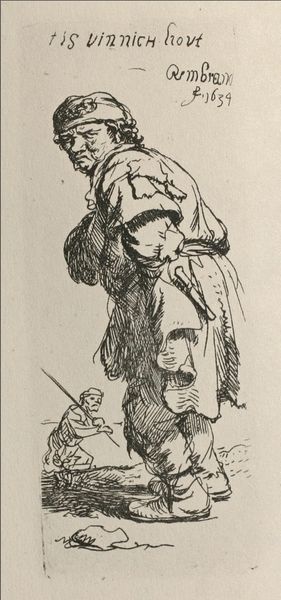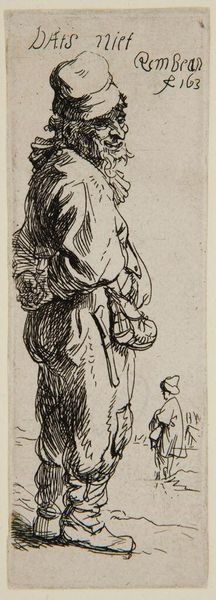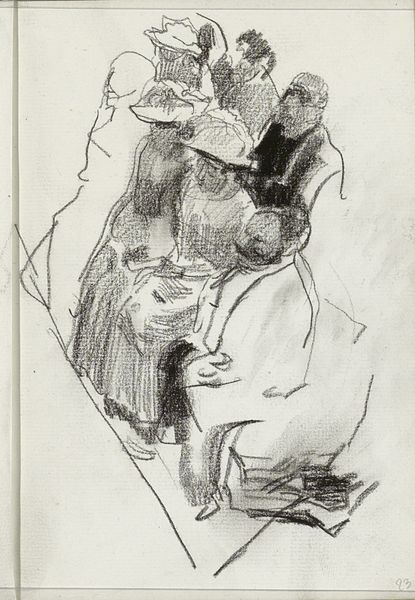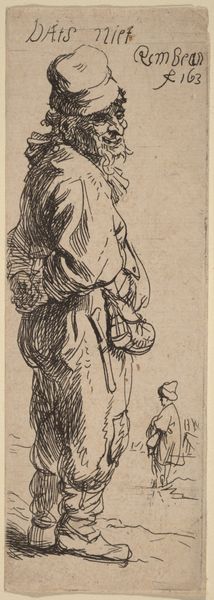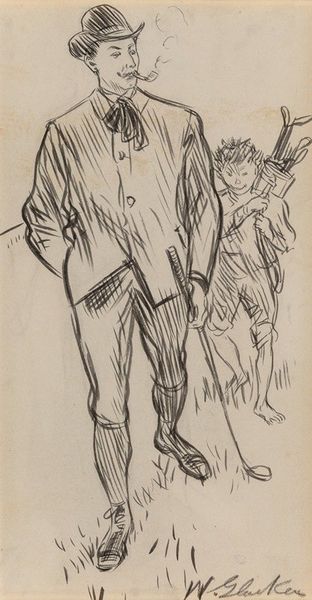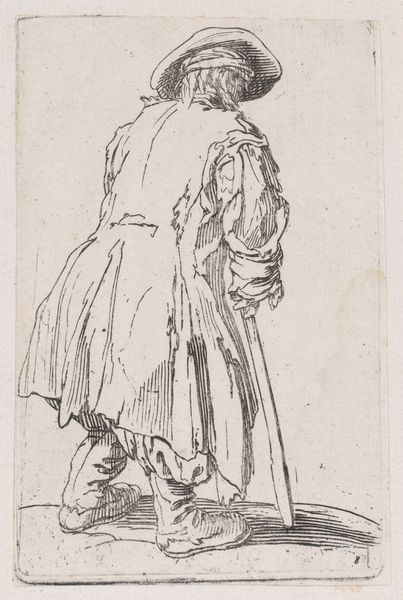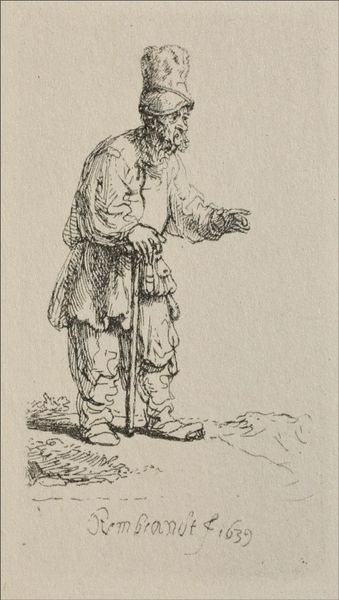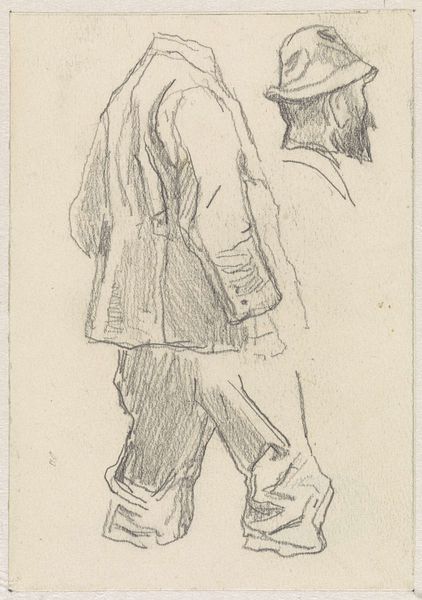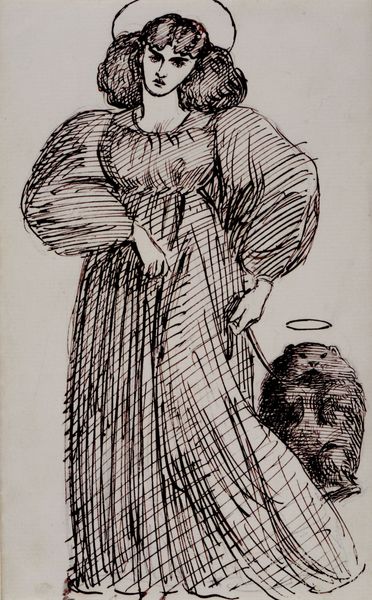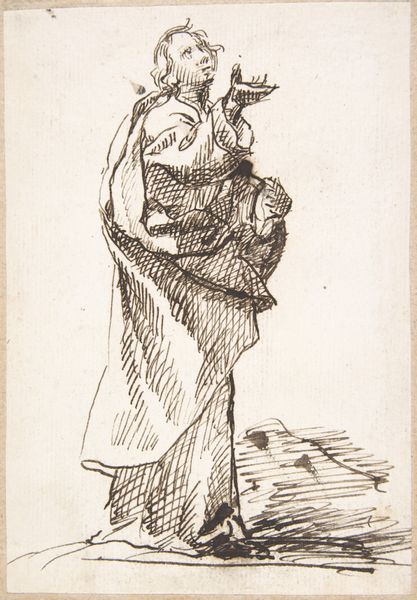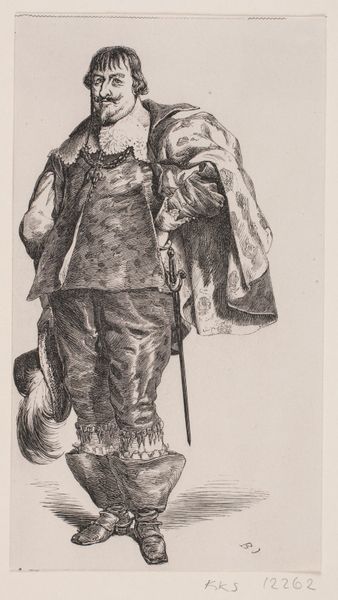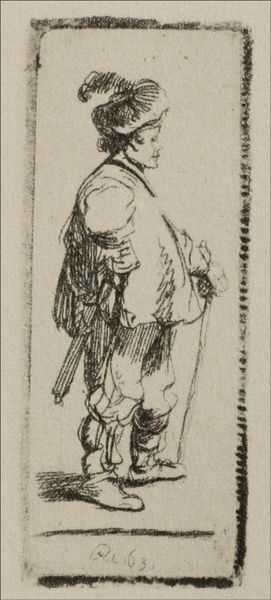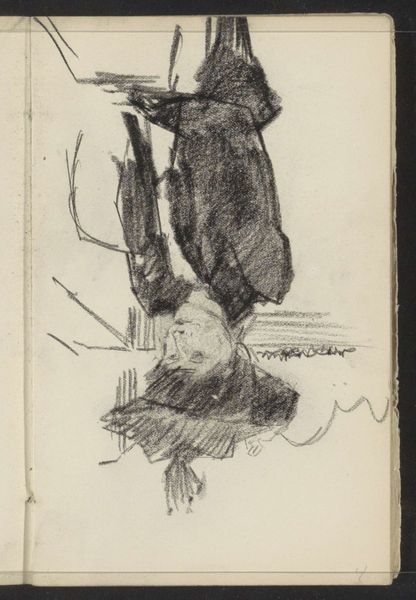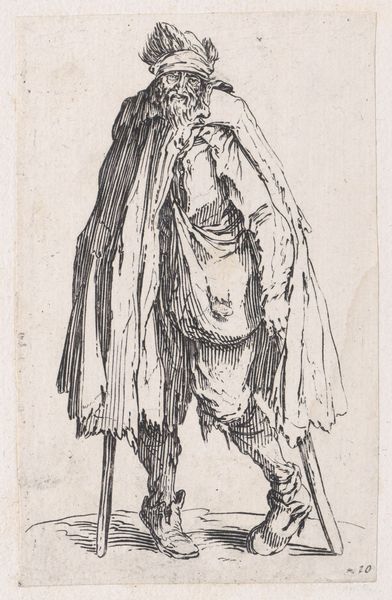
drawing, etching, ink, pen
#
portrait
#
drawing
#
comic strip sketch
#
narrative-art
#
dutch-golden-age
#
etching
#
figuration
#
personal sketchbook
#
ink
#
idea generation sketch
#
sketchwork
#
ink drawing experimentation
#
sketch
#
pen-ink sketch
#
sketchbook drawing
#
pen
#
genre-painting
#
storyboard and sketchbook work
#
sketchbook art
#
initial sketch
Dimensions: 11 x 4 cm
Copyright: Public domain
This etching was made by Rembrandt van Rijn in 1634, using an iron plate, coated with wax, through which he scratched his design. The plate was then immersed in acid, which bit into the exposed metal, resulting in an image in relief. What's fascinating here is how Rembrandt used line to create texture and volume. Note the density of marks suggesting the beggar's ragged clothes and the rough terrain he stands upon. This emphasis on materiality – the grit and grime of everyday life – is central to Rembrandt's vision. Etching was a relatively democratic medium, allowing for the production of multiple images, and dissemination of art to a wider audience. Rembrandt made many prints of everyday figures, drawing attention to the lives of ordinary people. This print is a powerful reminder of the social realities of 17th-century Holland, and the labor involved in producing both art and a life. Ultimately, it challenges our notions of beauty and value.
Comments
No comments
Be the first to comment and join the conversation on the ultimate creative platform.
